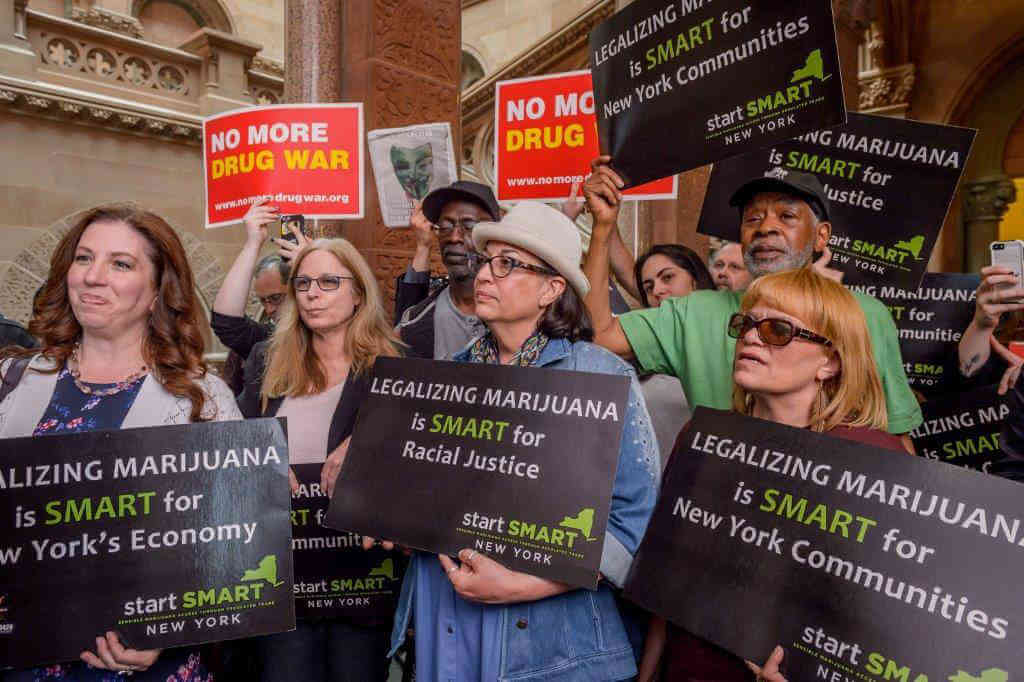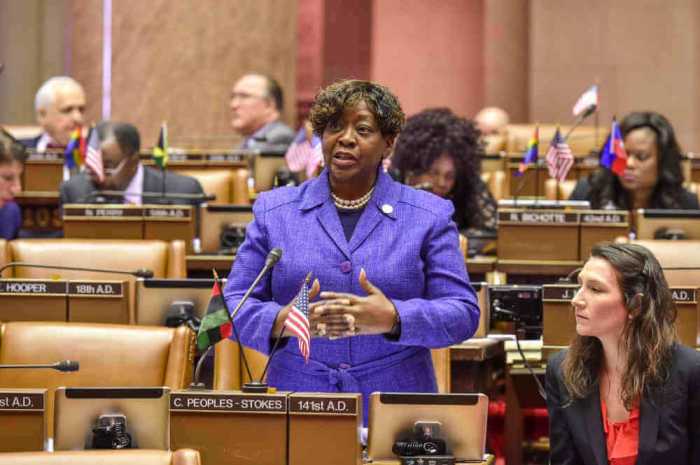The apple doesn’t fall far from the tree when it comes to marijuana enforcement in New York City’s suburbs.
Black and brown people are singled out for marijuana possession arrests in Westchester County, according to studies by the Drug Policy Alliance and suburban civil libertarians.
A new study of Westchester arrests found racial disparities comparable to the ones that mar city enforcement and provide evidence that legalization of pot would provide real benefits to communities of color.
Per 100,000 people in Westchester, 15 whites but 182 blacks and 84 Latinos were arrested for possessing pot. Some portion of those people of color arrested face the risk of deportation as the result of this enforcement pattern.
The study, prepared by Kathy Kaufman of the Westchester Coalition for Police Reform, found that between 2013 and 2017, one in 63 of Westchester’s black adult residents was arrested on a low-level marijuana possession charge — a probability of arrest for black people that was exceeded only by Suffolk County outside of New York City.
Young people of color were arrested more often than white youth, burdening them with a criminal record.
“Between 2013 and 2017, Westchester police arrested 1,059 youth under 20 years old for low level marijuana possession, accounting for nearly one in three (29 percent) arrests on that charge County-wide,” the study found. “Fifty-eight percent — a total of 2,322 people — arrested for low-level marijuana possession in Westchester County were 25 years old or younger.”
The report “Marijuana Arrests and Enforcement in Westchester County: A New York Story” sustains the argument recently advanced by the State Health Department that legalization would communities of color because an “emerging body of research” shows that “the risks to public health and social wellbeing of legalizing marijuana are smaller than previously thought” and the “the detrimental effects of the current marijuana enforcement regime” cause more harm than the alternative of making pot available for adult use.
The Westchester study was funded by the Drug Policy Alliance as it pushes for passage of laws to tax and regulate marijuana sales as is currently done in California, Colorado, and Massachusetts.





































